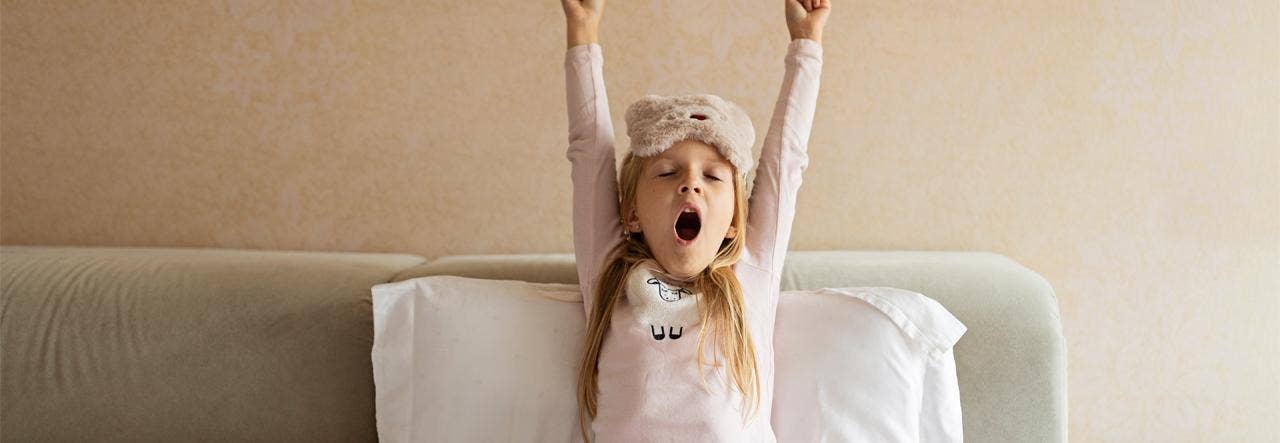In some ways, children today are living in a completely different world than the one we grew up in. For example, not too many 9-years-olds are running outside to play after school and not coming home until the streetlights turn on, are they? Yet, quite a few own iPhones.
From Common Core math and Google classrooms to YouTuber aspirations and activity-filled calendars, our kids are busy and stressed. And, studies show they are not getting enough rest. In fact, 52% of school-aged kids are getting less than the 9-11 hours of sleep recommended by pediatricians.
This is not good. Your child’s health and development are very closely connected to sleep. Those recommended 9-11 hours are when your kid’s brain is busy sorting and storing information, replacing certain chemicals, producing antibodies and all kinds of important stuff.
But, is your child’s lack of sleep actually insomnia? Or just a few bad nights? Essentially, the main difference – quite literally – is whether this is an ongoing sleep issue or just short-lived and circumstantial.
What Is Child Insomnia?
Child insomnia is a common sleep disorder that has a negative impact on both sleep quality and quantity. In simple terms, your child is not able to get the necessary amount of sleep to maintain their health and well-being.
A general rule of thumb is that child insomnia is likely if your kiddo’s inability to fall or stay asleep lasts for at least a month. Kids with insomnia may:
- Resist bedtime
- Express anxiety about going to bed
- Have trouble falling asleep
- Wake frequently throughout the night
- Fall asleep during the day without intending to
- Appear to be excessively groggy
What Causes Insomnia in Children?
It can be hard to pinpoint the reason your child is struggling to get good, restorative sleep. Often, child insomnia is connected to multiple issues or lifestyle factors, including:
- ADHD and other behavioral disorders
- Anxiety, depression and mood disorders
- Neurodevelopment disorders
- Stress
- Asthma
- Allergies
- Growing pains
- Poor sleep environment
- Caffeine and diet
- Certain medications
Child insomnia can also be a biproduct of additional underlying sleep disorders like obstructive sleep apnea, restless legs syndrome or night terrors.
How Insomnia Affects School-aged Kids
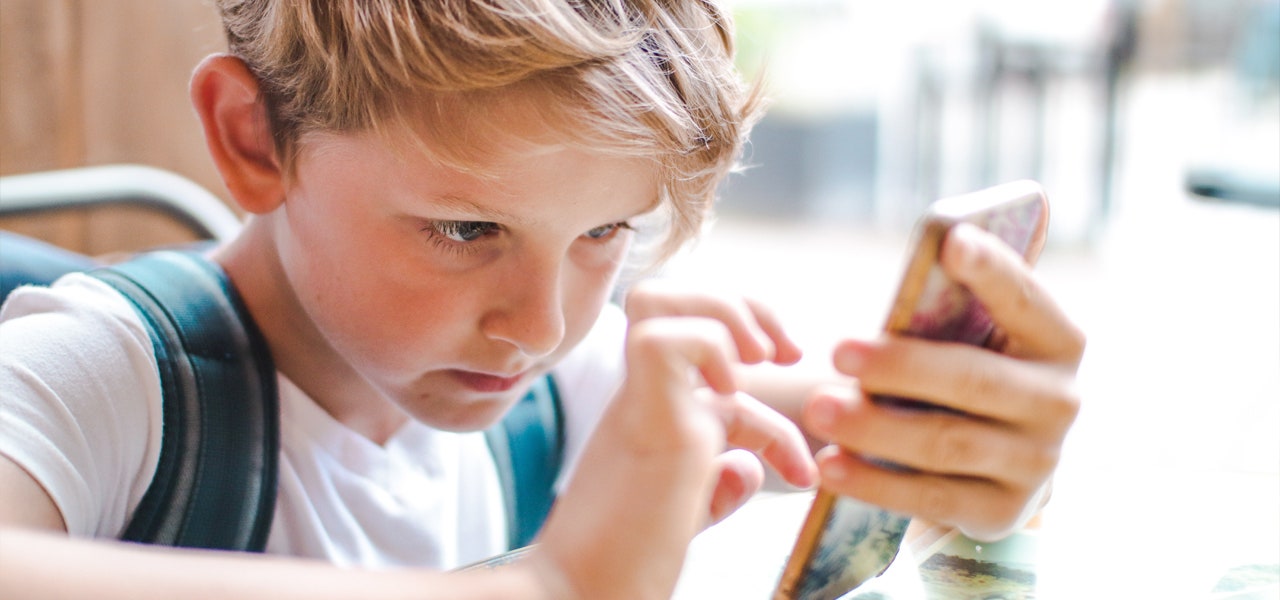

If your child has a had a few nights of poor sleep, they’ll probably let you know… with their cranky or overly emotional behavior. However, kids who are suffering from ongoing sleep issues like child insomnia are at risk for a range of behavioral and health issues. Insomnia can lead to:
- Headaches
- Weakened immune system
- Moodiness
- Problems concentrating
- Impaired memory
- Poor performance at school
- Delayed responses/more accidents and injuries
Child insomnia can contribute to more serious health problems as well, such as obesity, type 2 diabetes, irregular heartbeat and mental health disorders.
Natural Remedies for Child Insomnia
If you’re worried about child insomnia, it’s a good idea to make an appointment with your pediatrician or a certified sleep coach. In the meantime, here are some natural remedies that may help support better sleep for your kid:
1. Limit Blue Light Exposure Before Bed
This is a tough one because in many families, kids enjoy winding down for the night with a TV show or some screen time. However, studies indicate that blue light (from phones, tablets, computer screens, TVs, etc.) suppresses the body’s ability to produce melatonin and can make it harder for your child to sleep. Aim to turn off the screens 1-2 hours before bedtime.
2. Revamp Your Child’s Diet


Sugary, starchy and processed foods can lead to poor sleep, as well as foods and drinks with caffeine (think chocolate and soda). Instead, incorporate more whole grains, magnesium-rich foods like almonds and leafy vegetables, healthy fats, and lean proteins. We have lots of good sleep-promoting food suggestions here. Establishing consistent mealtimes can also be very effective.
Regular exercise does all kinds of awesome things for your child’s brain and body, including promoting healthier sleep. Bonus points if your child can incorporate exercise outdoors in the sunlight to soak up some vitamin D and tap into their natural circadian rhythm.
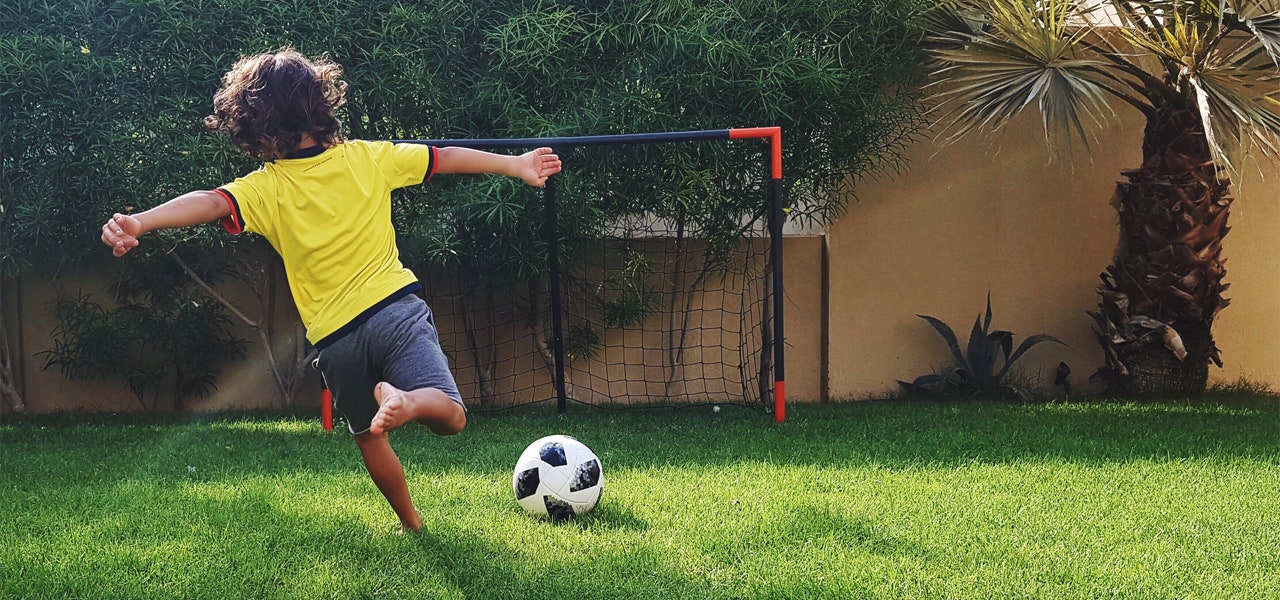

3. Encourage Physical Activity
4. Experiment with Relaxation Tools
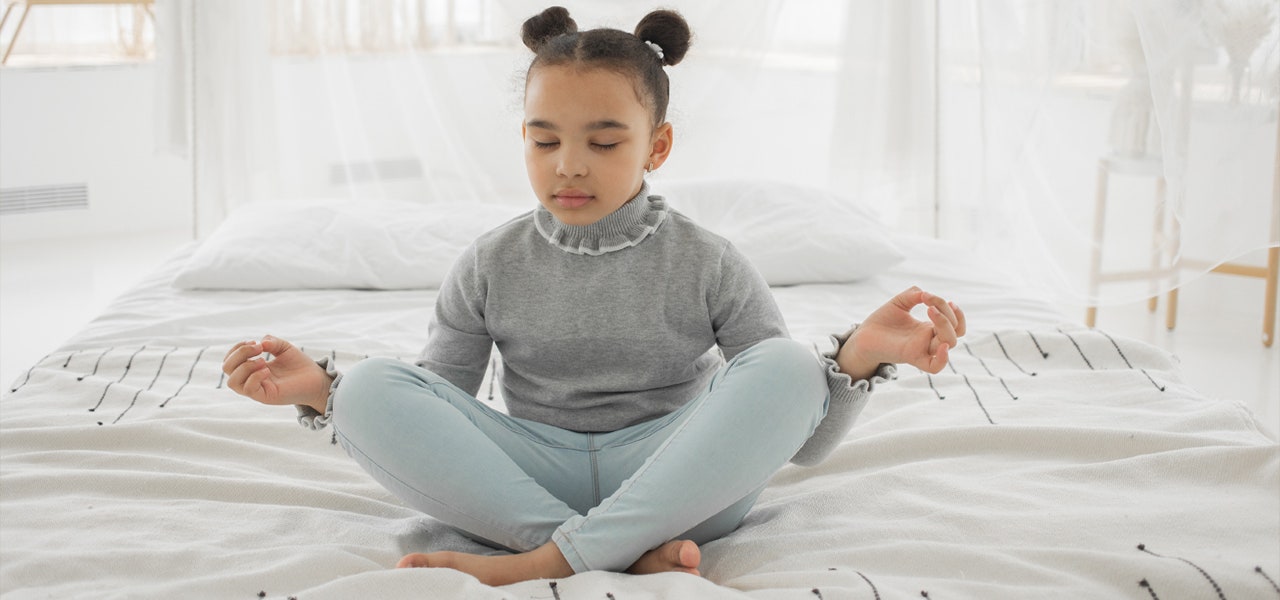

From meditation to chamomile tea to lavender essential oil spritzes on the pillow, many of the relaxation methods we rely on as adults can also be hugely helpful to school-aged kids struggling to sleep. Here are some meditation apps for kids to get you started, but be creative and try lots of things!
5. Enhance their Sleep Environment
Your child’s bedroom should be set up for the primary purpose of sleep. As much as possible, keep it as a space dedicated to just that. This might mean keeping the gaming system elsewhere or having them do homework at the kitchen table instead of on their bed. Additionally, consider things like:
- Blackout curtains
- Clocks that do not light up
- A fan (or other way to keep cool)
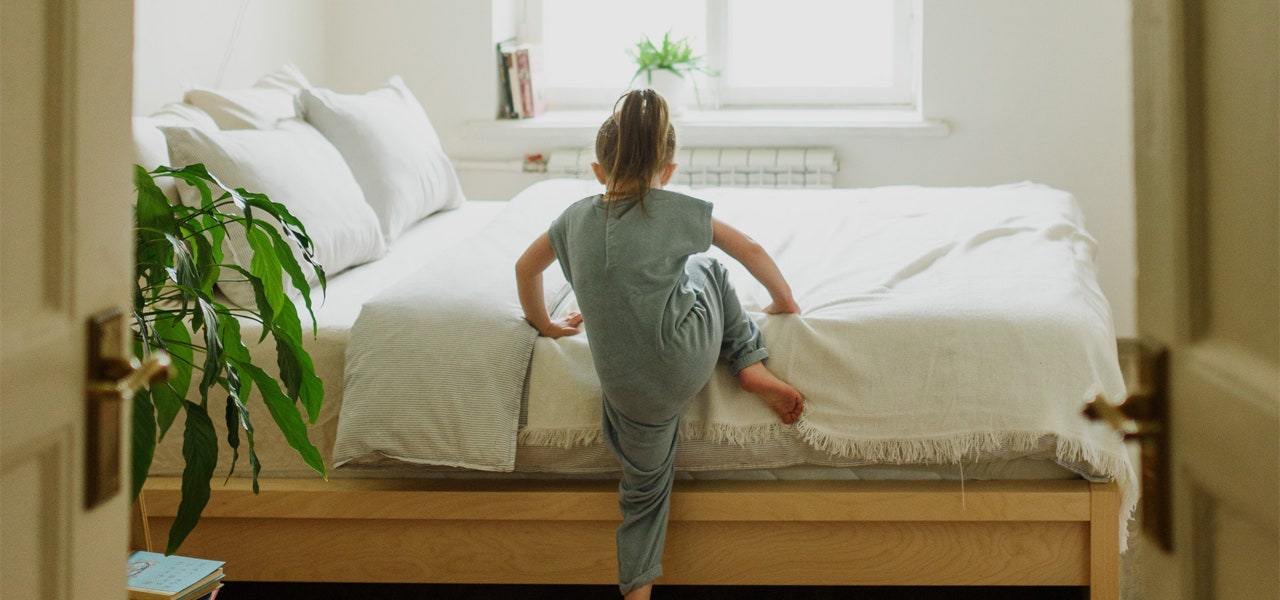

At Naturepedic, we also believe that certified organic kid mattresses, bedding and pillows can contribute to safer, healthier sleep. Comfortable and made without harmful chemicals, these items improve the indoor air quality in your child’s bedroom and also have naturally cooling effects. Feel free to browse our kids collection here.
 BABY
BABY  KIDS
KIDS  ADULT
ADULT  LEARN
LEARN  STORES
STORES 